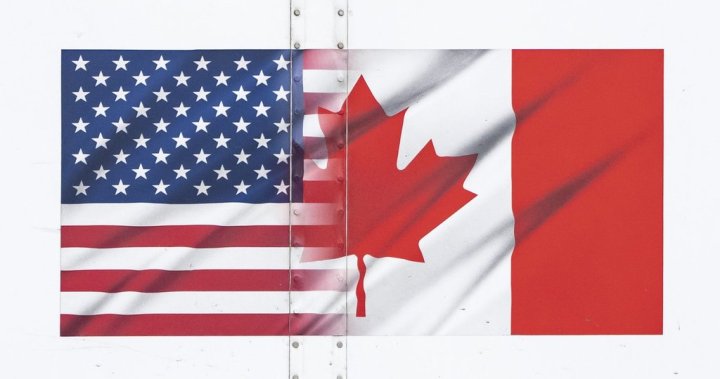The ripple effects of former President Donald Trump’s rhetoric on border security have reached small Canadian businesses faster than anticipated, with some reporting significant financial impacts within days of his recent comments. At Peace Arch Duty Free in Surrey, B.C., owner Peter Raju has witnessed a concerning 30% drop in American customers this month—a decline he directly attributes to heightened border anxieties.
“When potential visitors hear threats about tightening borders or imposing new restrictions, they simply choose to stay home,” Raju explained during an interview at his store, which sits just meters from the Canada-U.S. boundary. “The uncertainty creates immediate hesitation, and that translates to empty parking spots where American cars would typically be.”
Trump’s campaign promises to implement what he calls “the largest deportation operation” in U.S. history have reignited concerns among border communities that depend heavily on cross-border traffic. While these policies would primarily target undocumented migrants within the United States, the broader messaging appears to be dampening international travel enthusiasm, according to business analysts tracking border economies.
The timing couldn’t be worse for Canadian border retailers. Many were just beginning to recover from pandemic-related closures that saw cross-border traffic plummet to historic lows between 2020 and 2022. Data from the Canada Border Services Agency shows that while visitor numbers had been steadily climbing through early 2024, recent weeks have shown a noticeable decline in discretionary travel.
“We’ve built our business model around providing Americans with products they can’t easily find at home or items that carry significant savings due to exchange rates and different tax structures,” said Lisa Nordstrom, who operates a specialty maple products shop near the Abbotsford crossing. “When political rhetoric makes crossing seem complicated or potentially problematic, we lose that advantage overnight.”
Economic experts monitoring the situation note that border town economies often serve as early indicators of larger trade tensions. Dr. Melissa Chen, an economist at the University of British Columbia specializing in Canada-U.S. relations, points out that these small businesses are “canaries in the coal mine” for broader economic impacts.
“What begins as hesitancy among casual shoppers can escalate into supply chain adjustments and investment reconsiderations if the perception of border complications persists,” Chen explained. “The integrated nature of our economies means even rhetorical shifts can trigger real economic consequences.”
Some business owners are already implementing contingency plans. At the Duty Free Americas store in Blaine, Washington, management has increased marketing efforts targeting domestic travelers to offset the decline in Canadian visitors, who have similarly reduced cross-border shopping due to concerns about potential return difficulties.
Governmental response has been measured. Canada’s Minister of International Trade, Mary Ng, acknowledged the concerns during a press conference in Ottawa last week but emphasized the resilience of the Canada-U.S. relationship. “Our trade partnership has weathered numerous political cycles,” Ng stated. “We continue to engage with our American counterparts to ensure the border remains efficient and accessible for legitimate travelers and commerce.”
For business owners like Raju, however, such reassurances provide little immediate relief. “Politicians can talk about long-term stability, but I have to make payroll next week,” he said, gesturing toward his unusually quiet store. “Every day of reduced traffic is another day closer to difficult decisions about staffing and inventory.”
As the November U.S. election approaches, border community businesses are bracing for potentially greater volatility. Many are diversifying their customer base and exploring e-commerce options that don’t require physical border crossings, while others are reducing operating hours to minimize overhead costs during periods of uncertainty.
The question remains: in an era where political rhetoric can instantly impact consumer behavior across international boundaries, can small businesses at the frontiers of our nations develop sufficient resilience to withstand the increasingly unpredictable winds of political change?









